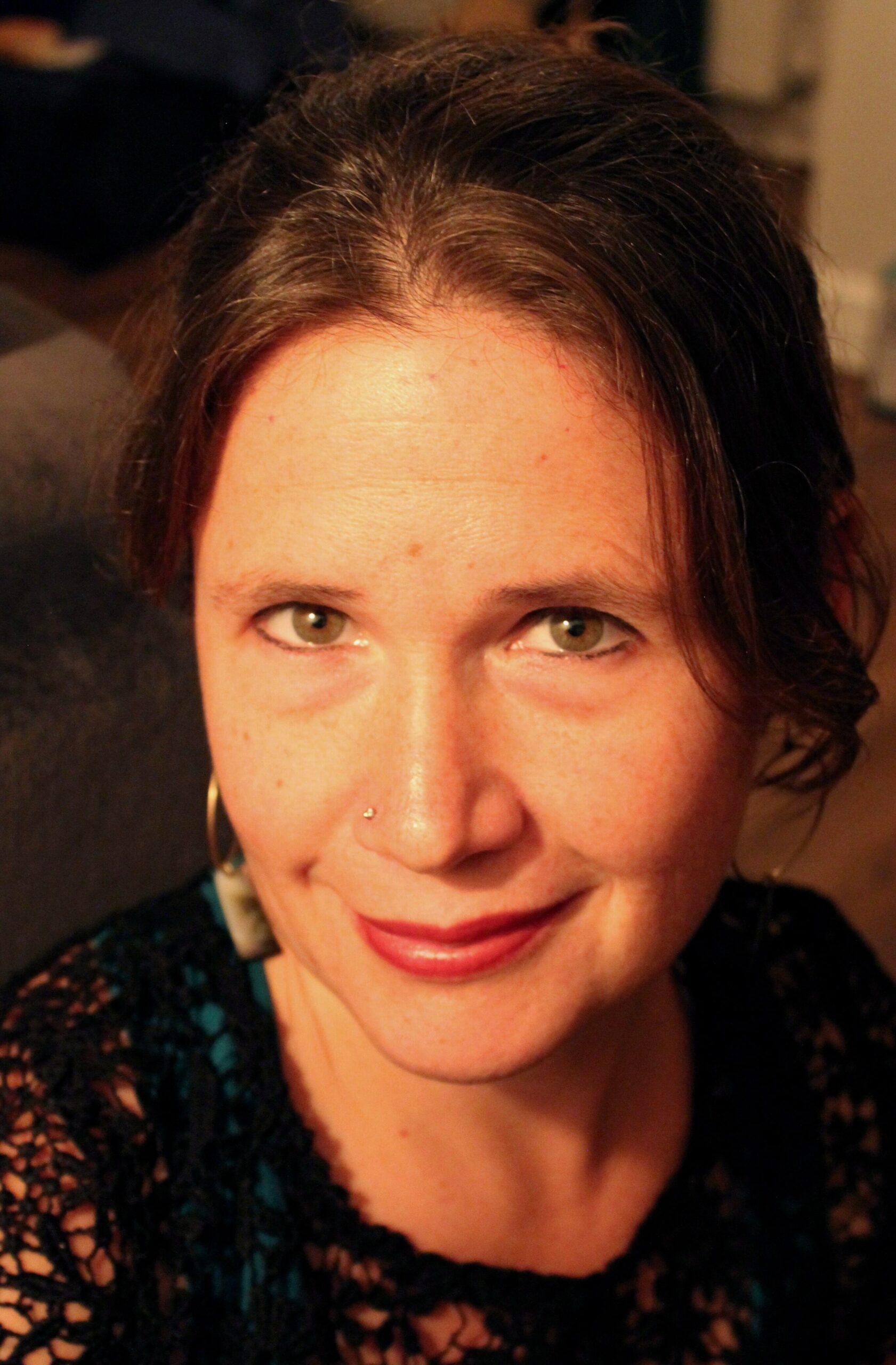Contributor Spotlight: Alexandra Teague
 Alexandra Teague’s poems, “[I have had to learn the simplest things last. Which made for difficulties.]” and “Ecce Homo” are part of Issue 79 of Bellingham Review. Subscribe or purchase a single issue through our Submittable page here.
Alexandra Teague’s poems, “[I have had to learn the simplest things last. Which made for difficulties.]” and “Ecce Homo” are part of Issue 79 of Bellingham Review. Subscribe or purchase a single issue through our Submittable page here.
What would you like to share with our readers about the work you contributed to the Bellingham Review?
“[I have had to learn the simplest things last]” was really written during the week that all of our luggage for an entire year’s sabbatical was lost. My husband and I were walking around Cardiff, Wales trying to find an apartment to rent, while wearing (initially at least) some crazy clothes we’d found at the only store open the night we arrived. It was a surreal time, and I’m amazed I was able to write about it as it was happening. The title, which is a Charles Olson line, had been on my mind for years. The other poem came out of seeing an exhibit/game about formerly-attributed-to-Bosch paintings at the Philadelphia Museum of Art a few years ago with a friend, the poet Tobias Wray. Visual art is one of my great loves, and often ends up working its way into my poems.
Tell us about your writing life.
I’ve been writing since I was a kid but really studying, writing, and thinking about it since I was an undergraduate in the 90s. As a writer and person, I love Adrienne Rich’s idea that truth is “an increasing complexity,” and I’m very interested in layering histories, untold stories, disparate stories and references, and complex feelings in my work. I hope my writing works against our sound-bite culture and drive to simplify. A lot of my poetry is about people whose stories have been simplified or forgotten (e.g. the artists’ model Audrey Munson, who is one of the focuses of my newest book of poems, Or What We’ll Call Desire (Persea 2019), or Sarah Winchester, who was a focus of my previous book). I’m also really fascinated by narrative and how we carry on narratives socially, including via visual art and music.
Which non-writing aspect(s) of your life influence(s) your writing the most?
I’m really influenced by things that I read–sometimes literary, sometimes news–and by visual art. Family stories and dynamics and my own teaching also make their way in.
What writing advice has stayed with you?
One I always return to is my first mentor, Michael Burns, saying that you should never know the end of a poem when you begin it. I love discovering what I really think and feel through writing, and I think that process of discovery is what makes all the hours of hard work seem (at best) less hard. To quote Rich again, I love her idea that “poems are like dreams: in them, you put what you don’t know you know,” and I feel as if I learn every day about myself and the world through writing.
What is your favorite book (or essay, poem, short story)?
Recently, I fell completely in love with Moby Dick, which I’d never read. I think about Anne Carson’s “The Glass Essay” a lot, and it and Autobiography of Red are basically perfect texts to me. As for other all-time favorite writers I’ve returned to for years, Anne Sexton, Walt Whitman, Larry Levis, Mark Doty, Toni Morrison, Audre Lorde, and Elizabeth Bishop are somewhere in the pantheon.
What are you reading right now?
Ralph Ellison’s Invisible Man, which I also had never read, and which is utterly blowing my mind. It is so poetically, brilliantly written, and incredibly complex.
What project(s) are you working on now, or next?
I’m working on poems toward a fourth manuscript, partly in response to U.S. patriotic songs, as well as a series of poems about gun violence for a project called TRIGGER that the poet Nick Lantz and composer John Lane are curating.
Anything else our readers might want to know about you?
I love to travel and have been to all 50 states and a number of countries but had never gotten to live overseas til sabbatical this past year in Cardiff, Wales. As my poem suggests, when we arrived in Cardiff, they were having a seagull swarm/problem, which everyone was complaining about, which was a little awkward for me because I’ve loved seagulls since I was a landlocked kid and came to associate them with going to the ocean (at that time, the Gulf of Mexico in Texas), and I got a seagull tattoo years ago after I moved to the Pacific coast / California. People in Cardiff looked at that tattoo very strangely as the seagulls screeched around us. (If you want more of a sense of my obsession with the ocean, I wrote a novel, The Principles Behind Flotation (Skyhorse 2017), about a girl growing up in Arkansas in a town where an inland sea has miraculously appeared. My fictional sea shares something with Cardiff Bay, which I didn’t learn til I moved to Cardiff!)
Where can our readers connect with you online?
www.alexandrateague.com and on Facebook (as Alexandra Teague)
ALEXANDRA TEAGUE is most recently the author of Or What We’ll Call Desire (Persea, 2019). Her prior books are The Wise and Foolish Builders and Mortal Geography, winner of the Lexi Rudnitsky Prize and the California Book Award in Poetry, and the novel The Principles Behind Flotation, as well as the co-edited Bullets into Bells: Poets & Citizens Respond to Gun Violence. Alexandra has recently returned from Cardiff, Wales, to Moscow, Idaho, where she is a professor at the University of Idaho.
Featured Image: “Different Worlds” by NASA